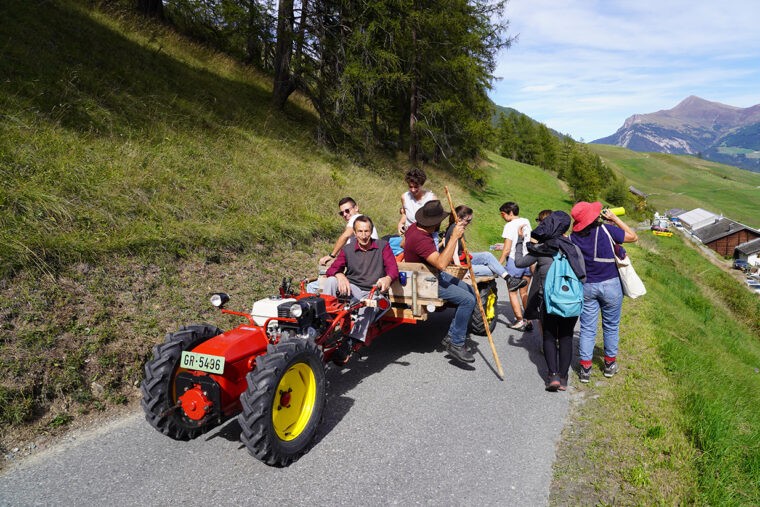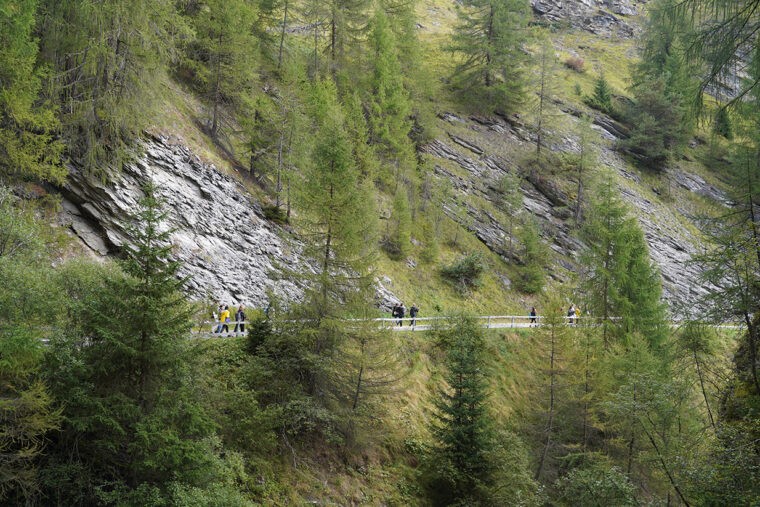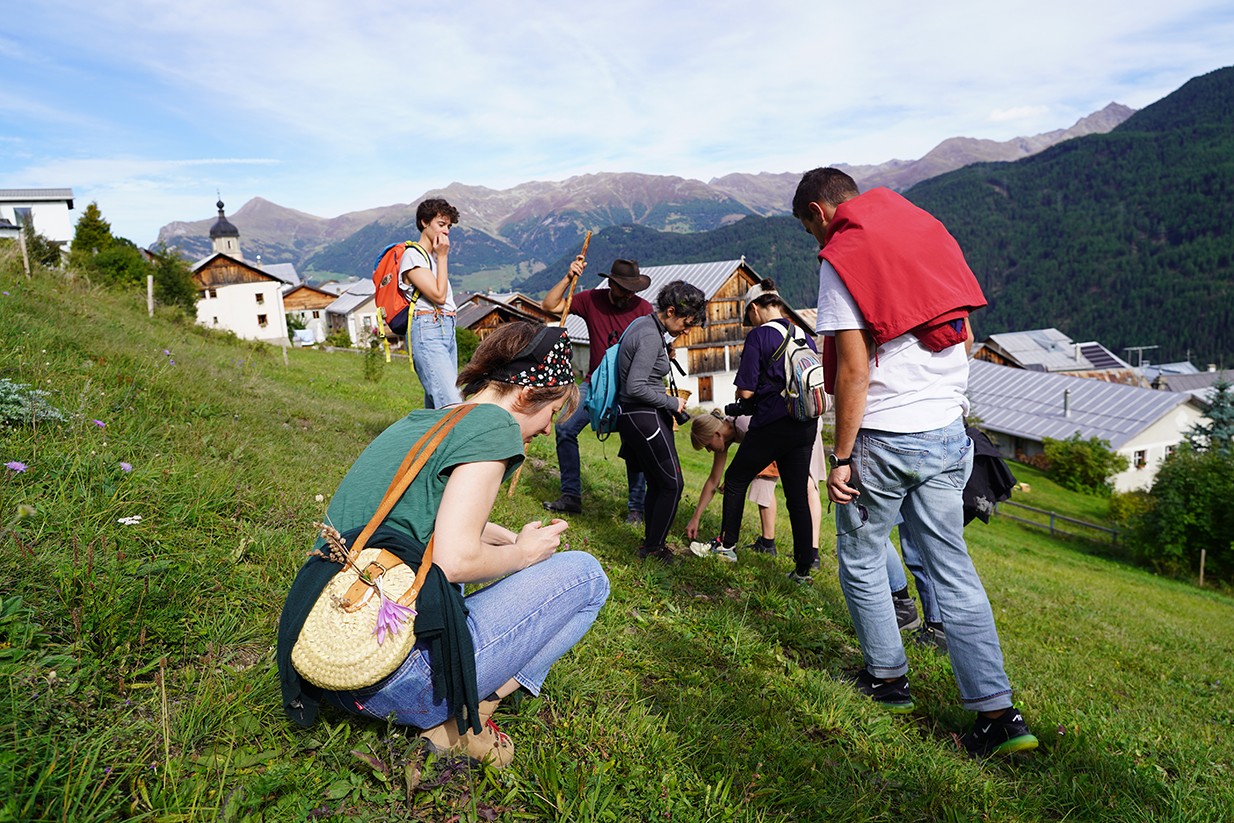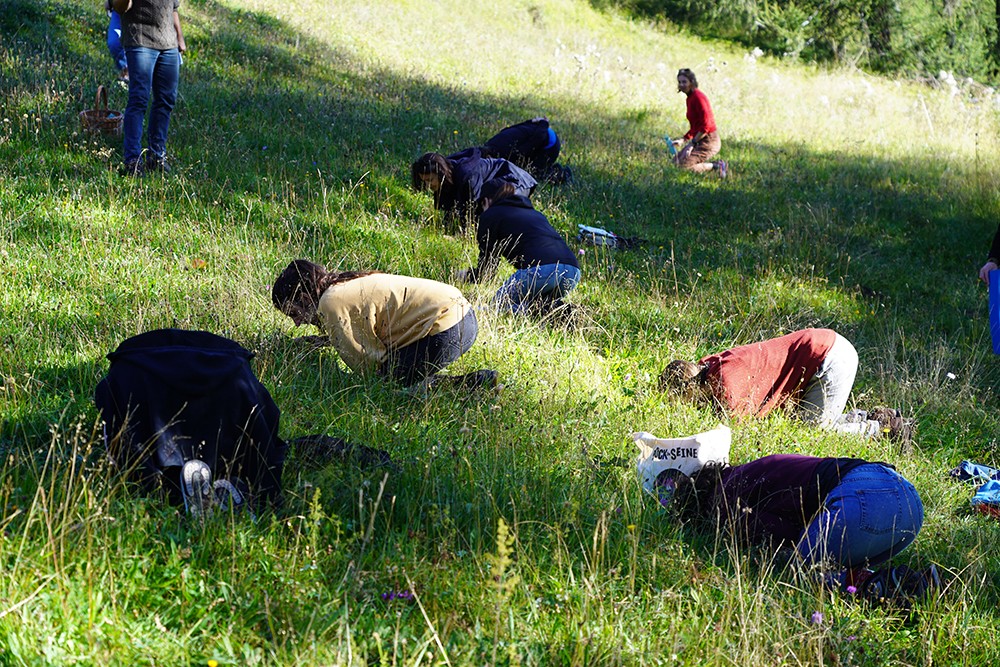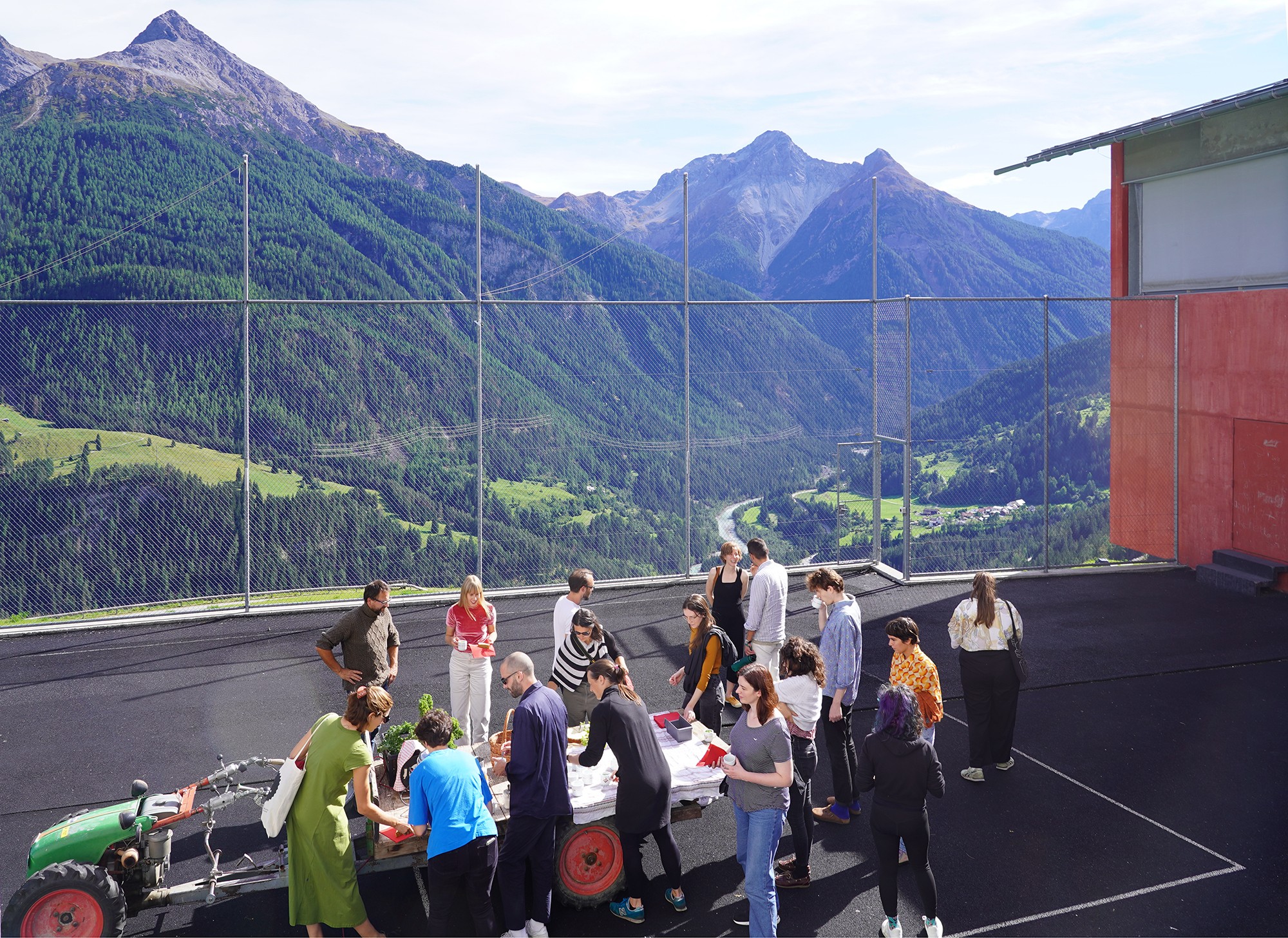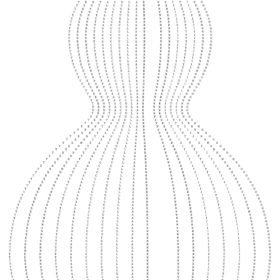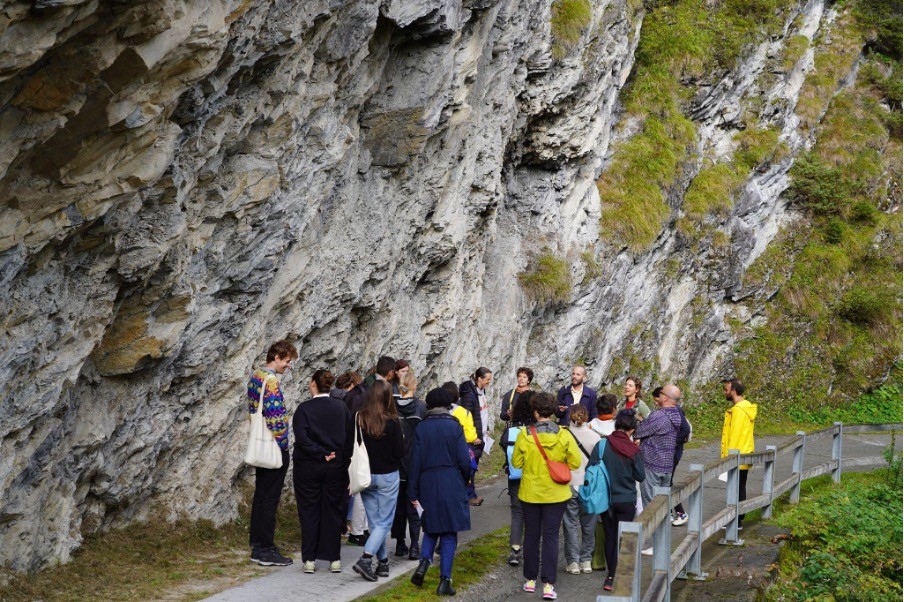
«… it matters what stories we tell to tell other stories with; … what thoughts think thoughts, what descriptions describe descriptions, what ties tie ties. It matters what stories make worlds, what worlds make stories». D.J. Haraway
In September 2022, a group of 18 architects met in the village of Tschlin in the Swiss Alps. In a non-hierarchical learning format, researchers and spatial practitioners came together to experiment with the ways we perform writing.
Our goal was to explore a collective writing retreat that would allow us to re-engage with localities and situate ourselves, counteracting the common gestures of isolation and detachment. We bent down to smell soil and grass, we recorded and narrated landscapes through sounds, we listened to the site and to each other, we wrote letters and learned to co-author, we performed our writings collectively: around a fountain, along a mediated walk towards a dying tree, next to the scrapes of the village walls, in rituals and in writing gestures. We departed on a journey of writing-with, an exploring of a tentacular way of writing.
«Tentacularity is about life lived along lines – and such a wealth of lines – not at points, not in spheres.»
(Haraway, D.J., 2016, Staying with the trouble, p.32.)
Donna Haraway introduces us to the notion of tentacularity, starting from the forest spider Pimoa Chuthulu who has herself many tentacles and acts as the name bearer for her neologism, the Cuthulucene. Tentacles help Haraway to imagine other ways of thinking – of thinking-with. They become a mode to counteract human exceptionalisms that manifest in the Anthropocene and a tool for creating stories of ongoingness in a more-than-human elsewhere/elsewhen. For us, tentacularity became the starting point to imagine another way of writing – of writing-with, as a collective sensorial and situated practice which embraces creative uncertainty. Tentacular Writing allowed us to imagine the possibility of different architectural cultures: of listening, sensing, and situating; different kinds of authorships: orientated towards visibilising latent voices and embracing collectivity; different kinds of knowledges: produced sensorially, in non-hierarchical learning formats and in open pedagogies. Ultimately, Tentacular Writing revealed to us writing as a medium to build communities, a powerful act of encountering, thinking-with, writing-with and as a space- and world-making practice.
Tentacular writing – A peer-to-peer writing retreat took place as a joint ETH Zürich and EPFL summer school, curated by the doctoral students Johanna Just (ETH), Metaxia Markaki (ETH), and Sila Karatas (EPFL), supported by Prof. Dr. Philip Ursprung (ETH) and Adj. Prof. Dr. Elena Cogato Lanza (EPFL), with input by guest tutors: Prof. Jane Rendell (UCL), Dr. Polly Gould (UCL), Dr. Sarah Butler, Curdin Tones (Somalgors74) and Ludwig Berger (ETH).
Metaxia Markaki is an architect and doctoral student in Landscape and Urban Studies at ETH Zürich and a research and teaching associate at the ETH chair of Architecture of Territory. Previously, she was involved in territorial research and teaching at ETH Studio Basel. She is a co-founding member of the collaborative project Landscape In-Between and That Studio.
Johanna Just is an architect and doctoral fellow in Landscape and Urban Studies at ETH Zürich at the Chair of Being Alive. Before coming to Switzerland, she worked in architecture and art practices in the UK and Germany, and taught at the Bartlett and Oxford School of Architecture on architecture and landscape programmes. She is a co-founder of the Bakerloos.
Participants: Carnelli, Elettra; Colthurst, Emma Mary; Ferreira Crevels, Eric; Hefti, Susanne; Lemouchi, Indira; Knoop, Hannah; Konuk, Ece; Lonergan, Hamish; Mompean Botias, Estefania; O’Caroll, Aisling Marie; Rieger, Elena; Shehu, Gent; Van Daele, Galaad Bourrec; Verhaeghe, Gerlinde.

